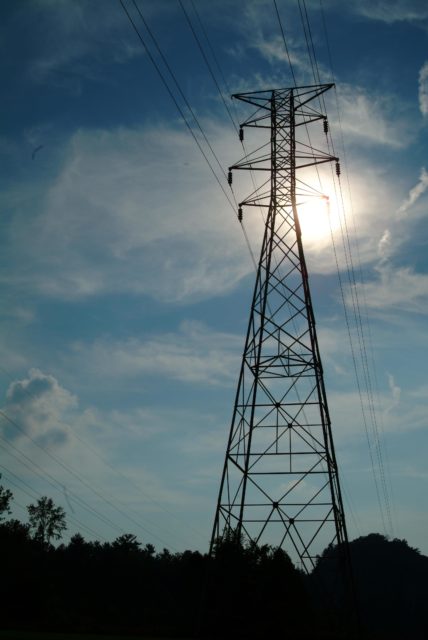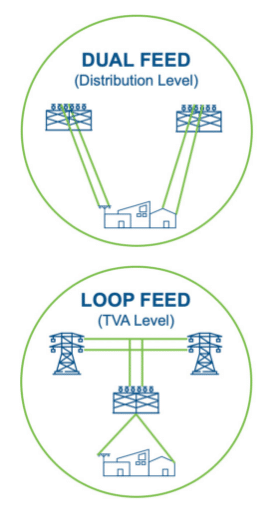Many key players help facilitate the site selection process in the economic development arena. One of the consistent team members on any economic development team is the locale’s electricity provider. On the surface, it may seem as though the singular role of a power company in an economic development project is to provide electricity to a site. Yet utility companies provide value and help execute projects in many different ways.
ELECTRICITY PROVIDER’S ROLE IN ECONOMIC DEVELOPMENT
Power companies play a pivotal role in providing utility service for any site and ultimately a company locating in a given area. One of the key site selection factors is having adequate utility service to a site. Whether a client has significant power needs (ex. heavy machinery) or only requires basic electricity service (ex. lighting), electricity providers deliver an imperative service.
Before a Project
Important engagements with a power company in economic development happen before a project begins to evaluate a community. In industrial and commercial site planning, electricity providers are engaged in the early stages of site development to ensure the designated areas within their power system (where project activity occurs) have adequate electricity capacity and the highest level of service for a potential end user. Not having adequate capacity to serve a site can negatively impact both a client’s development timeline and their project budget. Proactive investment in sites and infrastructure has become a very important discipline in economic development and many electricity providers are taking a key role in product development in their territories. Some power companies not only help identify sites that could provide the best level of utility service but also invest from a site development and marketing perspective.
During a Project
Once a project is evaluating an area, electricity companies are often working hand-in-hand with the state and local economic development partners to win the project. During a project, power companies add value by providing energy consultation, including helping a client understand the amount of power required for the potential facility and how much it will cost on a yearly or monthly basis. Power companies also provide technical assistance and development plans for infrastructure build-out. This assistance helps a company understand timelines, plans, and any potential costs associated with providing power to a site. Many utility companies also deliver incentives to help alleviate costs for a potential investor. Incentives such as bill credits or “rate riders” are aggregated into the total incentive package for a project to help strengthen what state and local entities are able to offer in terms of incentives.
After Project Location
Once a project locates in a community, the electricity provider continues its partnership with the company by providing the electricity service. Power companies provide the end user the electricity a project needs, which also comes with customer service. Power providers continue to assist with technical support or service-related issues, and can also provide companies energy-saving advice. This partnership between the power company and end-use consumer ultimately helps companies run their plants more efficiently and save more on their power bills.
DATA NEEDED BY ELECTRICITY PROVIDERS IN THE SITE SELECTION PROCESS
Electric utility providers are often asked to provide rates and generate sample bills for companies to help determine costs in the decision-making process. To provide sample electricity bills, power companies need a few key pieces of information regarding the projected electricity usage of a plant including demand, energy, and load factor which are described below.

Additional considerations for site selection and rate calculations include redundancy and desire for renewable energy.
Redundancy
Some companies cannot afford interruption in their power service, thus needing a backup plan. Some clients request “dual feed” service, or power service from two different substations. In the instance of a power outage at one substation, a client can continue service from another substation. Not every site has access to dual feed service, however. In the case where dual feed is not available, some power companies have the ability to provide a “loop feed” or self-healing transmission service where the power company routes power via a single high-voltage transmission line to either side of a loop. Electricity then can be sent to a substation from either direction on the transmission line. These two service configurations are shown to the right.
Renewable Energy
Sustainable energy has become a desired commodity across industry sectors. End-use customers are becoming increasingly conscious about the energy they consume and its impact. Therefore, companies are continuing to request more renewable energy in their energy mix. Many power companies have the ability to provide renewable energy solutions to help meet carbon goals. More than 50% of TVA’s generation is considered “non-emitting,” which automatically can help a company reach its sustainability goal. For additional renewable energy, TVA has the ability to provide renewable solutions from sustainable sources such as solar and wind in the form of Renewable Energy Credits or directly from the energy source.
Whether it is a power-intensive project or a project that needs minimum utilities, it is important for the electricity provider to be engaged in site development from an early stage. Power companies have proven to be a key player on economic development teams and help drive the site selection process.
Lee Johnson is a member of the Economic Development team for the Tennessee Valley Authority (TVA) where he serves as the Manager of Regional Field Operations. Lee can be reached at fljohnson0@tva.gov or 251-377-7161.
TVA provides electricity for business customers and local power companies serving 10 million people in parts of seven southeastern states. Founded in 1933, TVA continues today to carry out the mission of serving the people in the Tennessee Valley region, to make life better through work in energy, the environment, and economic development. For more information, visit TVA at www.tva.com.